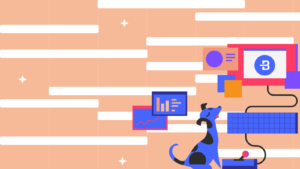Most folks realize that this brand new year will not magically bring an end to the pandemic, nor the many difficulties that accompanied the virus. Mother Nature rarely yields to man-made constructs like clocks, calendars, or quarterly closings.
I noticed COVID’s non-medical impact even more acutely this year operating an early-stage SaaS business. I had done it before but this time has been very different. The most notable changes occurred when the dangers of the virus required us to quickly pivot to being a remote-first company. There are aspects of remote work I enjoy, but I want to focus on problems we saw and changes that we made to help build remote infrastructure to ease pain and handle scale.
We discovered quickly that in-person meetings had been somewhat of a crutch for our team, and worse, most folks viewed meetings as a detractor from focus and creative time. On the other hand, Alex Krug (Baton’s CEO and cofounder) and I viewed meetings as a forum where we would test and execute assumptions, which surfaced a much bigger issue: meetings were not productive for everyone. Here are a few observations and lessons learned:
- One of our co-workers instituted twice-a-week 15-minute standup meetings. The structure is quick, held early in the day and helps everyone stay on task without being disruptive to work. Even the meeting haters can put up with 15 minutes.
- Cross-department collaboration on inputs and outputs. The biggest downside we’ve felt from not being in the office is the messy “hand off.” The misalignment of preferences on deliverables can cause cultural problems. Every team should understand, and discuss their inputs and outputs, and their respective requirements with all responsible parties.
- Make collaboration a mandate for your company’s hardest projects, because when things get challenging, teammates are obligated to help one another. And when the project wrapped successfully the team is strengthened, having been through “the trenches” together.
- Distributed knowledge quickly silos and dissipates. Without a process or platform to quickly capture, manage and disseminate project knowledge and workflow data there’s a tendency to create single points of failure in your organization. BUT DON”T RELY ON SLACK FOR THIS!!!
- At Baton, we tend to ‘drink our own Kool-Aid.” Our product is a centralized system of record about your client implementations, that updates in real-time, . You don’t need a product for every workflow, but you do need a way to ensure you’re not creating problems down the line.
- Important information should not be historically preserved or referenced in Slack if it can be avoided a majority of the time.
- Foster asynchronous communication & watch productivity soar.
Extroverted/social thinkers suffer
- When meetings are viewed in contempt, it’s hard for some teammates who feed off others’ energy or feedback to produce quality work. Such brainstorm meetings might be labeled by haters as aimless, but they often produce our best concepts, as they’re an amalgamation of our collective views, thoughts and input. We have instituted an optional brainstorm meeting bi-weekly, where teammates can propose items they’re like to brainstorm with a larger group.
- Culturify the idea of meetings being more optional and people will have the mental bandwidth and find the enjoyment of meeting again.
Onsites and Offsites are critical
- Yes in the time of COVID this isn’t easy. I suspect offsites/onsites will become incredibly important otherwise humans are just pixels in a window. We will be doing many at Baton.
- Social events monthly for the team are crucial and a nice Mini-site for them – At Baton we like Trivia over zoom. It’s fun, it takes 1-2hrs and you tend to learn alot about your teammates
Let’s face it, this transition to remote has not been easy for anyone, in part because it’s new to almost everyone, except for maybe NASA. But there are certainly pros. Our teammates being healthy and safe cannot be compromised, so we’ll likely be working remote for a bit longer. To be more efficient, we’ll use our own product to provide a centralized portal-like environment where PMs can direct the flow of these virtual meetings, bypass the obvious and jump to the project’s most pressing concerns.
Among the many things we’ve learned during this pandemic is that behaviors can and will evolve to improve communications. The world of software implementation will follow suit and find new ways to work across organizational domains, adopt new mechanisms to recognize project delays and their causes, provide visibility into task status and inform impacted participants when deadlines are approaching or missed. No one at Baton is downplaying the severity of the pandemic, however we are optimistic that 2021 and the years ahead will reveal that even dramatic, unwanted change can produce new and better approaches to solving old problems.



